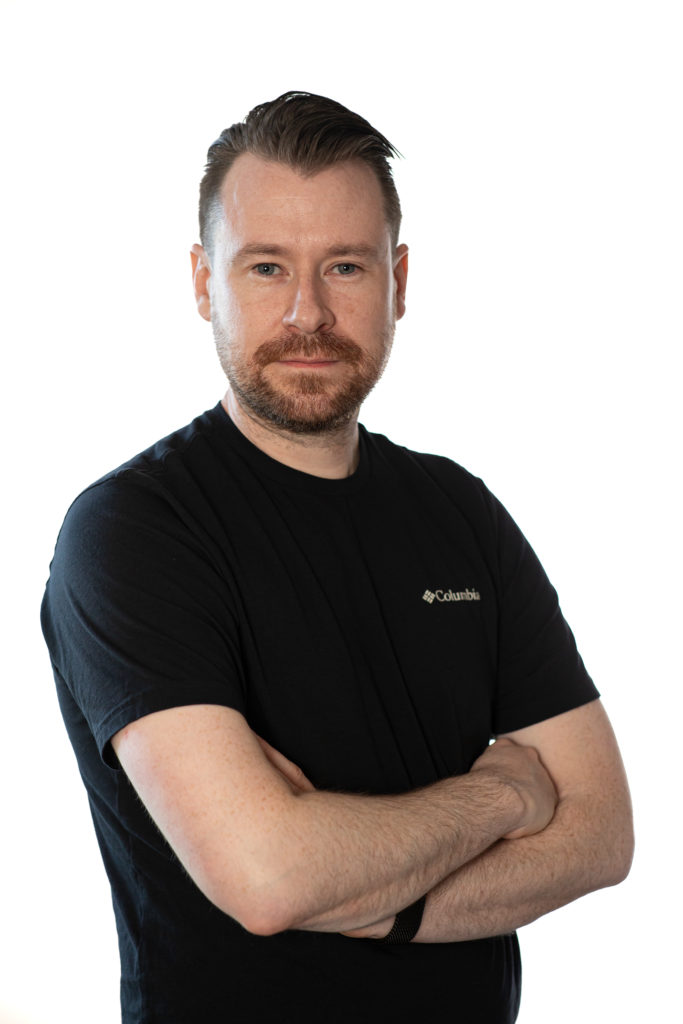TECHNOLOGICAL tools are transforming the way the world works.
Artificial intelligence is now in use across all sectors, from IT to health and retail to transportation, legal and financial services.
Whether automating mundane tasks and streamlining operations such as customer service, or for improving health and safety or data processing, the technology, which enables computers and machines to simulate human learning, comprehension, problem solving and decision making, is revolutionising industries across the board.
AI is widely regarded at the future and there are plenty of Irish firms who are already committing to the changes or helping to lead the revolution.
In Bristol, the Irish founded cybersecurity firm OnSecurity has just launched a new service which uses AI to improve their offering while reducing the cost to clients.
Originally the firm, which was founded by Kildare native Conor O’Neill, developed software which allows its users to test and find security issues in their systems that would leave them vulnerable to hackers.
Last month they updated their offering to launch the first AI-augmented pentesting service to hit the market – which they say offers the perfect solution for their clients.
“The new service combines the creativity and expertise of human security professionals with advanced artificial intelligence capabilities, optimising the entire security testing process from initial reconnaissance to final reporting,” O’Neill, explains.
Over in Limerick, tech start-up Zerve has created a platform which allows AI and data developers to work seamlessly together.
CEO Phily Hayes, who co-founded the firm in 2021 with Jason Hilary and Greg Michaelson, says the product offers a “secure, productive environment in which to explore, build, test and deliver data and AI products in record time”.
This week, the business leaders took time out to tell The Irish Post more about their business, their industries and the importance of AI…
 Conor O'Neill, CEO at OnSecurity
Conor O'Neill, CEO at OnSecurityConor O’Neill, CEO at OnSecurity
Born in Leixlip, Co. Kildare, Mr O’Neill moved to the UK in his 30s. Now aged 43, he commutes from his home in Liverpool to the office in Bristol.
When and where was your company founded?
We launched in 2018 in Bristol.
What inspired you to create the business?
OnSecurity was born out of frustration with the inefficiency of the processes surrounding penetration testing - getting quotes, booking a test, receiving the reports, and integrating the results into workflows in a meaningful way was all very manual and had a lot of friction.
Pentesting - or penetration testing, sometimes called ethical hacking - is a service where our consultants attempt to hack into the applications or systems of our customers, finding weaknesses so that our customers can fix the issues before they are hacked for real.
Tell us about your product/solution?
We have created an AI augmented pentesting platform that makes the entire pentesting process, from booking to delivery to remediation, as simple as possible for our customers.
OnSecurity’s platform makes procurement and management of pentesting and pentesting outcomes easy and pain-free compared to traditional models.
Our customers are typically fast-moving tech businesses of various sizes/stages who often require quick, efficient testing and reporting to meet compliance or client requirements.
Pentesting is required or strongly recommended in various sectors, including fintech, healthcare, software and technology, telecoms etc.
What benefits does it bring to your clients?
Quick example - it typically takes up to a month to schedule a pentest with another vendor due to multiple phone calls and slow exchange of information.
With our platform, booking a pentest takes about two minutes.
Once clients are on the platform, they can schedule, book and manage their test all in one place.
We aim to simplify every step of the pentest value chain.
We recently launched AI-augmented pentest delivery, which makes actual pentesting significantly more efficient.
Human testers can now focus on high impact, high quality work while AI handles low-value, tedious, repetitive tasks and most of the reporting.
How do you use AI within your service?
We use AI pretty much everywhere now to amplify our offering to clients.
By combining human expertise and AI, we are transforming the way security testing is performed and delivered with lower costs without compromising quality.
We use AI to generate quotes in real-time, for automating repetitive tasks such as reporting, to improve test coverage by enabling broader and deeper assessments and to improve efficiency, allowing human testers to focus on high-impact analysis.
We have also just released an MCP server which talks to our API so that our customers can ask anything they want about their security programme.
Operationally, we are rolling out AI more and more across the business, in particular in the sales and software engineering areas, to improve efficiency and throughput with the staff we have.
What are the greatest benefits/challenges of AI as a tool for your industry?
AI increases efficiency, lowers costs and expands coverage however, it is not a replacement for human expertise.
We need to rapidly become operationally AI-native and do more with fewer resources. Everyone on the team must become excellent at using AI to amplify their work, but not rely on it.
The way we have integrated AI in our platform creates a number of benefits for clients.
It saves security teams time and money, improves resource allocation across teams, handles tedious, low-value tasks such as reporting and frees up human testers to evaluate high impact tasks and findings
It also provides detailed contextualised reports with remediation guidance and aids faster, clearer communication.
Some challenges the industry might face include the fact that AI lacks creativity and human logic, so cannot replace human expertise (just yet!).
There are regulative compliance or ethical frameworks to consider.
For a critical service like pentesting - human assurance and accountability will always be required.
How challenging has it been to get clients to accept the use of AI services over traditional ones?
What I find interesting is that, despite the noise and clamour around AI, our customers generally haven’t been asking about it/for it that much just yet.
A lot of the pentesting market is regulatory driven and the customers need a given result and aren’t too fussed about what the technology that gets them that result is.
I expect this to change quite rapidly over the next 18 months or so.
What is your business goal for 2025?
Continue to innovate in the pentesting space as we have always done. To continue to grow our revenues and customer base and to become excellent at using AI operationally.
What's the biggest challenge facing your industry today?
Commoditisation, saturation and competition from pure AI pentest vendors are the biggest challenges in the industry right now.
How can it be overcome?
We must continue to differentiate and innovate as we have always done.
Continue to focus on the customer pain points.
We are designing our company strategy around Jevon’s paradox - whenever something gets cheaper, people buy more of it.
As the price of pentesting inevitably reduces, people will buy more pentesting, meaning the management and orchestration of pentesting will become ever more important.
We already excel in this area and will continue to focus our product development here.
How would you describe your job?
Bloody hectic but rewarding. I am extremely proud to be part of the change and look forward to seeing how we progress OnSecurity to continue to simplify pentesting for our clients.
What’s the best life lesson you have learnt in your career to date?
“It’s never as good as you think and it’s never as bad as you think!”
What’s your favourite thing to do when not working?
I enjoy playing with my son, running and playing guitar.
 Phily Hayes, CEO at Zerve
Phily Hayes, CEO at ZervePhily Hayes, CEO at Zerve
Hailing from New Inn in Tipperary, Mr Hayes now lives in Cahir. The 34-year-old co-founded Zerve in 2021. It is headquartered at the University of Limerick but now has representatives in nine countries across the globe.
When and where was your company founded?
May 2021, in Tipperary.
What inspired you to create the business?
The understanding we had that amazingly talented code first data teams weren’t having the impact they should have, we set about trying to solve that for them and their organisations.
What is your product/solution?
Zerve is the operating system for developing and delivering data and AI products.
Most tools on the market today solve isolated problems, but Zerve unifies the entire lifecycle—from planning and coding, to provisioning infrastructure, and deploying into production… in a single platform.
The multi-agent platform helps humans and AI agents to work side by side and is designed for organisations that are creating AI products built to scale with the ability to deliver value.
What problem does it solve and for who?
Zerve tackles one of the most persistent challenges in enterprise AI and data science: translating prototypes and isolated experiments into real-world, production-grade products.
In many organisations, data and AI projects stall after the proof-of-concept phase—not because of lack of talent or innovation, but because of bottlenecks in infrastructure, cross-team collaboration, and deployment workflows.
We empower data scientists, machine learning engineers, and analytics teams to collaboratively build, iterate, and deploy AI and data products without getting sidelined by DevOps or system integration issues.
What benefits does it bring to your clients?
Zerve accelerates the journey from idea to impact, giving clients a faster time-to-value and enabling them to deliver a higher volume of high-quality data and AI projects.
Zerve frees up experienced team members to focus on innovation and problem-solving. This means data teams are faster, more productive, more aligned, and more impactful. Zerve improves customer insights, optimizes operations, and supports new revenue streams.
How do you use AI within your product/solution?
Zerve is a platform for building AI, however we also use AI deeply within the platform, with breakthrough features like our Agent which works like a full stack Data & AI professional on your time.
Unlike traditional AI code assistants that offer narrow, task-specific suggestions, the Zerve Agent operates with a broader, end-to-end understanding of the project lifecycle. It can scope a project, architect a solution, write production-ready code, manage infrastructure provisioning, and troubleshoot issues as they arise - all through natural language interactions and intelligent automation.
Whether the goal is to spin up a new data pipeline, deploy a machine learning model, or run diagnostics on a production system, the Agent acts as an expert teammate to enable teams to move faster and reduce errors.
Zerve not only supports AI development, it reshapes how organisations build and scale intelligent systems.
What are the greatest challenges/benefits of AI as a tool for your industry?
The speed of change can be a challenge, but we mainly view it as an opportunity and an exciting time to be working with this sort of technology.
How challenging has it been to get clients to accept the use of AI services over traditional ones?
We work with expert teams who have been working with AI for years, long before ChatGPT made AI a universal topic of conversation, so our teams do not have this concern.
What is your business goal for 2025?
Continuing to support some of the most talented teams in world using our solution, like NASA, HPE & Canal+, while also building an even bigger RnD footprint here in Ireland.
What is the biggest challenge facing your industry today?
The speed of change.
How can it be overcome?
Remain agile, nimble and open minded to the boundaries of what’s possible constantly moving.
How would you describe your job?
Startup CEO.
What’s the best life lesson you have learnt in your career to date?
Celebrate the wins.
What’s your favourite thing to do when not working?
Hang out at home with my two kids and my wife.

